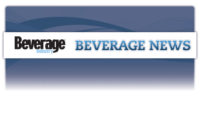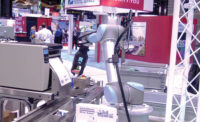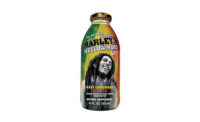Printed on a colored background and topped with a crown, “Keep Calm and Carry On” is a slogan that is popping up on everything, including T-shirts, coffee mugs, throw pillows and tea canisters. Originally printed on motivational posters produced by the British government in 1939 in preparation for World War II, this message of reassurance has become a modern day, pop culture fixture. Yet, more than 75 years later, beverage companies increasingly are entering this booming niche market to aid in consumers’ quest for stress relief, sleep promotion and relaxation beverages, experts say.
In its April report titled “Relaxation Drink Production in the US,” Los Angeles-based IBISWorld highlights that the industry rapidly gained momentum during the five-year period to 2016, as many producers introduced products to the market during this timeframe, it states. Additionally, the industry, in which the market research firm excludes ready-to-drink tea, dairy-based drinks and carbonated beverages, generated $218 million in sales, a 24.7 percent annual growth rate between 2011-2016, it says.
The report also explains that beverages marketed for relaxation purposes contain other functional benefts. “Some producers market their products to include such benefits as muscle tension [relief], reduction of caffeine effects, prevention of jet-lag and treatment of a variety of ailments, such as restlessness, insomnia, headaches and stomach cramps,” it states.
New York-based Beverage Marketing Corporation’s Managing Director of Research Gary Hemphill notes that the rise in popularity of energy drinks has proven that consumers are open to drinking functional beverages. Yet, he questions why the relaxation drink segment has struggled to gain footing. “Is consumer interest in relaxation as a functional beverage benefit lacking or are there some inherent issues with the current products on the market?” he asks. “It may be a combination of these two.”
However, Bill Driessen, director of tech sales for the Central United States and Latin America at Minneapolis-based Taiyo International Inc., notes a growing opportunity for the category to innovate because of saturation within the energy drink market, especially because small and large companies are looking for ways to differentiate their new products.
“As the number of opportunities for differentiation in the energy segment is reduced, it makes other beverage concepts more attractive,” he explains. “Relaxation, stress-relief and mental-focus beverages are the next logical step in the maturity of the energy drink segment. In other words, a saturated energy drink segment has given rise to a new segment.”
Experts note that relaxation and stress-relief beverages traditionally come in herbal infusions, which are most commonly found in teas and dairy-based beverages. But they point out that carbonated, isotonic/sport drinks or near-water hydrating beverages are gaining ground.
“Dairy-based relaxation products come from the age-old concept of milk and cookies before bedtime,” Driessen says. “… With research and ingredient technology improving, product formulators can now use botanical extracts and their derivatives to formulate calm, relaxed, focused beverages.”
Natural alternatives
The quest for more natural ingredients led to the development of Blue California’s ErgoActive Natural L-Ergothioneine, a dietary antioxidant that could help prevent premature aging, chronic inflammation and other health problems related to oxidative stress, the company says. Commercially available since October 2015, ErgoActive can be used in a variety of products, including beverages, dietary supplements and skin products, it adds.
The Rancho Santa Margarita, Calif.-based company is the first company to produce L-Ergothionine by fermentation, it adds. The company also offers its L-Tea Active, which contains 98 percent purified L-theanine and can be used in energy drinks, carbonated beverages, fruit drinks, water, hot coffee or tea.
Utilizing L-theanine, gaba, magnesium and B vitamins to provide the stress-relieving and focus-boosting functions, Austin, Texas-based Take 5 launched its self-titled stress-relief dietary supplement shot nationwide in February.
Ingredient manufacturers also are putting their resources into clinical trials to highlight the efficacy of these stress-relieving products. Taiyo’s Suntheanine, a L-theanine ingredient, has a vast amount of human clinical research data to support claims of calm, relaxed, reduced stress and mental focus without drowsiness, Taiyo’s Driessen says. “It’s important to differentiate between ‘calm-relaxed’ versus ‘drowsy-sleepy,’” he says.
When formulating products for relaxation and stress relief, Driessen emphasizes the importance of making sure the product doesn’t cause drowsiness.
With the energy drink market becoming saturated, Driessen says the underserved market for other functional beverages is emerging. “The market for calm, relaxed, reduced-stress and/or mental-focus beverages is still growing,” he says. “The segment still has a lot of room for innovation.”
The IBISWorld report indicates a similar future. “As industry operators extend their sales to new markets across the United States and customers show a growing interest in their products, relaxation drinks are anticipated to become a mainstay,” it states. BI




